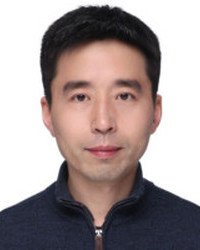Webinar Series
Merger Analysis in the App Economy: an Empirical Model of Ad-Sponsored Media
2021
Session Chair: Daniel XU
Professor of Economics, Duke University
Kohei KAWAGUCHI, Assistant Professor, Department of Economics, School of Business and Management, Hong Kong University of Science and Technology
Co-authors:
Toshifumi KURODA, Associate Professor, Department of Economics, Tokyo Keizai University
Susumu SATO, Assistant Professor, Research Division of Theories in Economics and Statistics, Institute of Economic Research, Hitotsubashi University
Ying FAN, Associate Professor of Economics, Department of Economics, University of Michigan
Speakers
-

Kohei KAWAGUCHI
Assistant Professor, Department of Economics, School of Business and Management, Hong Kong University of Science and Technology
Kohei Kawaguchi is an assistant professor of Department of Economics at Hong Kong University of Science and Technology. He received his PhD in Economics from London School of Economics. His research interests include empirical industrial organization and quantitative marketing. -

Ying FAN
Associate Professor of Economics, Department of Economics, University of Michigan
Ying Fan is an associate professor in the Economics Department at the University of Michigan. She got her Ph.D. degree in Economics from Yale University in 2009. She is a member of the National Bureau of Economic Research (NBER) and the Center for Economic and Policy Research (CEPR). Her main research interest is empirical Industrial Organization. -

Daniel XU
Professor of Economics, Duke University
Yi (Daniel) Xu’s research focuses on Productivity, International Trade, and Industrial Organization. He has received numerous grants from the National Science Foundation, the Private Enterprise Development in Low-Income Countries, and the NET Institute. His most recent work has been published in the American Economic Review, Management Science, the Review of Economic Studies, the Rand Journal of Economics, the Review of Economic Dynamics, and the World Bank Economic Review. He is currently working on projects that explore innovation, productivity, exporting and industry dynamics, with a special focus on emerging economies such as China, Colombia, Taiwan, Korea, and Turkey.
- 1
Session Format
Each session lasts for 1 hour 10 minutes (25 minutes for the author, 25 minutes for the discussion and 20 minutes for participants' Q&A). Sessions will be recorded and posted on ABFER's web, except in cases where speakers or discussants request us not to.
Registration
Please register here. A unique Zoom webinar link will be sent to you two days before the event. (Notice: Videos and screenshots will be taken during each session for the purpose of marketing, publicity purposes in print, electronic and social media)

